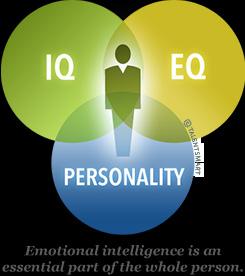
4 minute read
Skills a Manager Needs in Order to Manage Conflict
from Business Studies Grade 12
by Impaq
4.Skills a Manager Needs in Order to Manage Conflict
Managers and employees alike can and should be coached to change behaviour in order to handle conflict better. In order to change, employees in the organisation can, irrespective of their level in the business, use skills and tools to transform a conflict situation into an opportunity through constructive conflict resolution.
4.1 Ability to Deal with Change
Change is often one of the key contributors to conflict. Managers at all levels should be able to cope with change and help their employees deal with change.
“If you start to think the problem is ‘out there,’ stop yourself. That thought is the problem.” Stephen CoveyAt
This can be done by understanding how people deal with change and helping them to overcome anxieties related to change. People’s first reaction to change is usually resistance. Communication to motivate the change and training can be used to overcome or reduce resistance to change.
4.2 Tolerance Regarding Inclusivity and Cultural Diversity
Again: Beware of stereotyping!
People should be exposed to and educated regarding cultural diversity to create tolerance of differences. Keep background information in mind when dealing with different people. For example, there are huge cultural differences regarding time and interpersonal space, to name but two potential sources for conflict. Do you think an American who is appointed as the CEO of a company operating in South Africa will understand or appreciate it when the meeting starts twenty minutes late and the excuse offered is ‘African time’?
4.3 Communication Skills
A manager should have the ability to communicate information in a clear and understandable manner. The success of the communication is, however, often dependent on the degree of trust invested in the relationship. Without rapport the chances of successful communication diminish radically.
Regular meetings to get feedback and suggestions from employees can be useful communication tools. As an alternative to meetings to get input from employees, a suggestion box can be implemented. Meetings can also be used to communicate new initiatives and motivate changes that will be implemented. Notice boards, newsletters and memos are also forms of written communication in an organisation.
Regular written reports regarding proposed plans, the status of current activities and accomplishments can help management to pre-empt conflict situations that may cause problems.
An important element of communication is to listen to the reason for the unhappiness, acknowledge what is being said, then to try and understand why the person is feeling this way before responding. Summarising and paraphrasing before responding are good tools that may improve the communication process.
Negotiation, conciliation, mediation and arbitration are methods that can be used to reduce or eliminate conflict by involving a third party to improve the communication process.
4.4 The Ability to Think and Act Strategically
The starting point of strategic planning is to develop a shared vision and mission to help employees to understand the purpose and direction of the organisation. The system approach to strategic planning helps the organisation to link its internal and external environments and improve performance by reconciling available resources with changes in the external environment.
Linking the internal resources with the external environment requires an environmental scan using tools such as a SWOT- or value chain analysis in order to identify the key success factors and competitive advantage of the undertaking. The business can then formulate a strategy that will assist all employees to understand the long-term goals of the business.
Skills and Tools in Conflict Management
Although strategic planning takes place at top management level, it is important to get input and feedback from lower levels as well in order to ensure buy-in and understanding of the process. If this can be achieved, a huge obstacle would have been overcome in managing potential conflict in the organisation due to inefficient resource allocation.
4.5 Emotional Intelligence to Deal with Different Personalities and Emotions
Emotional intelligence refers to the person’s ability to manage relationships in a mature manner; this may include, amongst other things, resolving conflict and disagreements in a positive manner.
A good starting point for resolving conflict due to personalities and emotional issues is to keep emotions in check. This does not imply we have to ignore our emotions or pretend they do not exist, but rather that we make a choice about how to vent those emotions.
A manager should acquire the skills to steer a conflict in such a manner that people focus on the problem at hand and not get abusive towards the other parties. When emotions run high these two issues (the problem vs. the other person) often become entangled.
It is important that the origin of the conflict situation remains the focus and that the conflicting parties do not get sidetracked by non-pertinent issues in an emotional debate.
One tool that can be applied to separate the person and the problem is to ask the question “Why?” in order to understand the reason for the underlying problem. Asking the conflicting party to explain the problem will help in understanding the root cause rather than allowing people to get carried away justifying their emotions.

Source: http://www.talentsmart.com/about/emotional-intelligence.php





